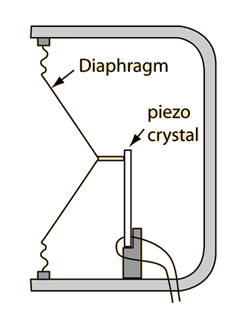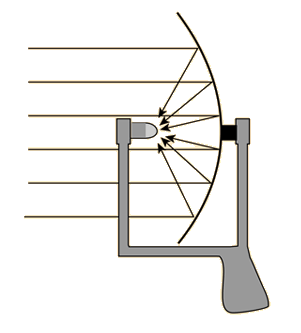Crystal Microphone
 |
Crystals which demonstrate the piezoelectric effect produce voltages when they are deformed. The crystal microphone uses a thin strip of piezoelectric material attached to a diaphragm. The two sides of the crystal acquire opposite charges when the crystal is deflected by the diaphragm. The charges are proportional to the amount of deformation and disappear when the stress on the crystal disappears. Early crystal microphones used Rochelle salt because of its high output, but it was sensitive to moisture and somewhat fragile. Later microphones used ceramic materials such as barium titanate and lead zirconate. The electric output of crystal microphones is comparatively large, but the frequency response is not comparable to a good dynamic microphone, so they are not serious contenders for the music market. |
| Microphone discussion |
Sound reproduction concepts
Reference
White & White
p299.
| HyperPhysics***** Sound | R Nave |

